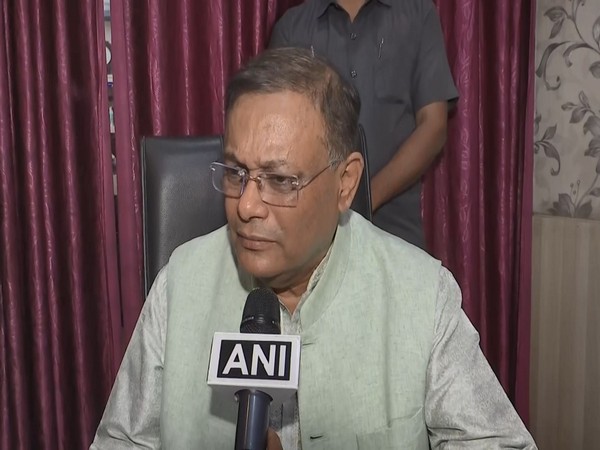
Kolkata : Bangladesh's Minister for Information and Broadcasting, Hasan Mahmud on Thursday said that India and Bangladesh relations have reached “new dimensions” as the two countries have begun trade transactions in “Rupee and Taka.”
In an exclusive ANI interview, when asked about the current political, economic and cultural ties between the two countries, Mahmud said that in recent months, India-Bangladesh ties have “got new dimensions because we have started business by exchanging Rupees and Taka. So day by day, our relationship is strengthening under their leadership.” In April, earlier this year, Bangladesh and India agreed to settle a part of the bilateral trade transactions in their respective currencies -- Rupee and Taka -- to ease pressure on dollar holdings, Bangladesh-based news website The Business Standard (TBS News) reported.
As per the news report, settling transactions in Taka and Rupee has been in discussions for months amid the crisis of the dollar. However, all the bilateral trade between the two nations will not be made in local currencies.
On improving India-Bangladesh border connectivity, Minister Mahmud said that India and Bangladesh share a long border, so the issue is likely to crop up, which will be resolved with dialogues.
“Since we have long border, we would have always border issues,” he said.
India and Bangladesh share 4096.7 km. of border, which is the longest land boundary that India shares with any of its neighbors, as per Ministry of External Affairs.
And we have resolved many border issues. So little issues always will arise and we shall resolve it and we are time to time two parties are sitting and we resolve the problems,” he added.
Speaking about the need to keep emphasis on more cultural exchange, Minister Mahmud said that a better cultural relationship that “will strengthen the ties between the people of Bangladesh and of India.”
“We have a strong relationship and we are working to strengthen the ties between the people. And day by day, that is strengthening,” he added.
Significant boosts in bilateral ties between India and Bangladesh were seen in the recent period. Starting from settling the protracted land boundary dispute in an amicable way in 2015, India and Bangladesh have partnered in numerous developmental projects.
India, for example, is financing several infrastructure and connectivity missions in Bangladesh through its Line of Credit, totalling over eight billion dollars now, at a concessional rate.
Connectivity projects such as a multimodal road-rail link between Agartala in India's Tripura to Akhaura in Bangladesh is a prime model. The reopening of an old rail link between Chilahati and Haldibari, apart from regular train services between Kolkata and Dhaka, and bus connectivity from Dhaka to Shillong, Agartala and Kolkata is increasing the physical connectivity between the two countries.
India has also provided a grant for the building of the Padma bridge which will provide crucial rail-road connectivity between India and the north and south regions of Bangladesh. In waterways connectivity as well several new routes have been activated including a new bridge across the Feni river to facilitate the movement of goods and passengers from Tripura to Bangladesh.